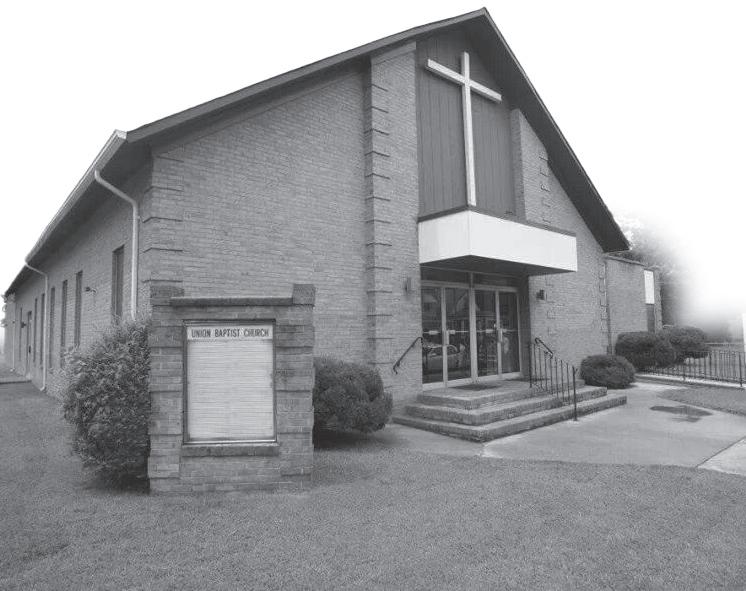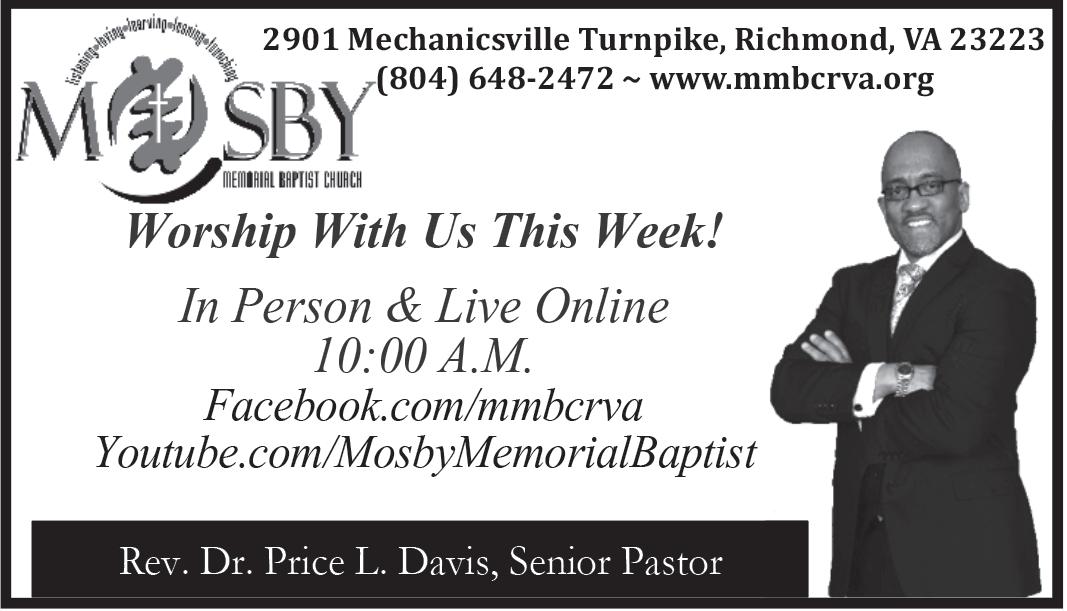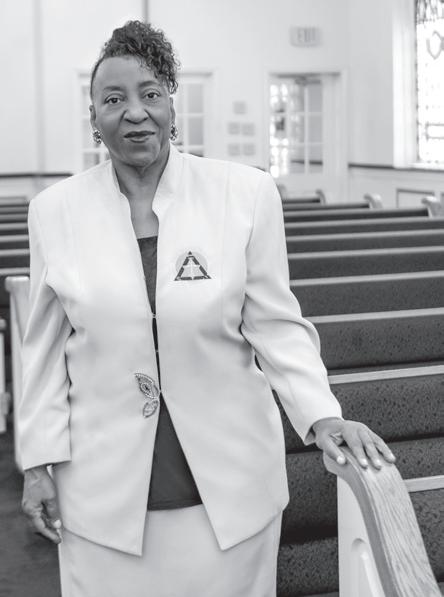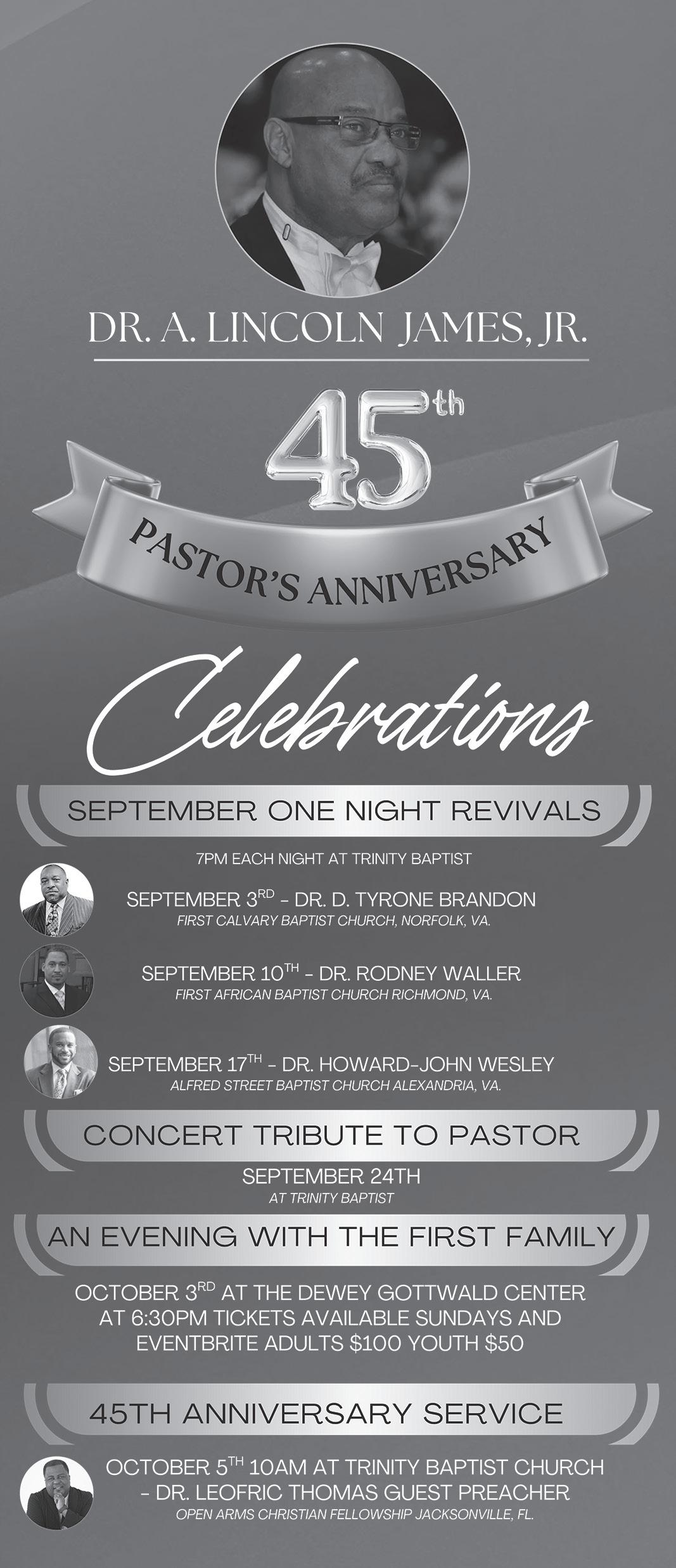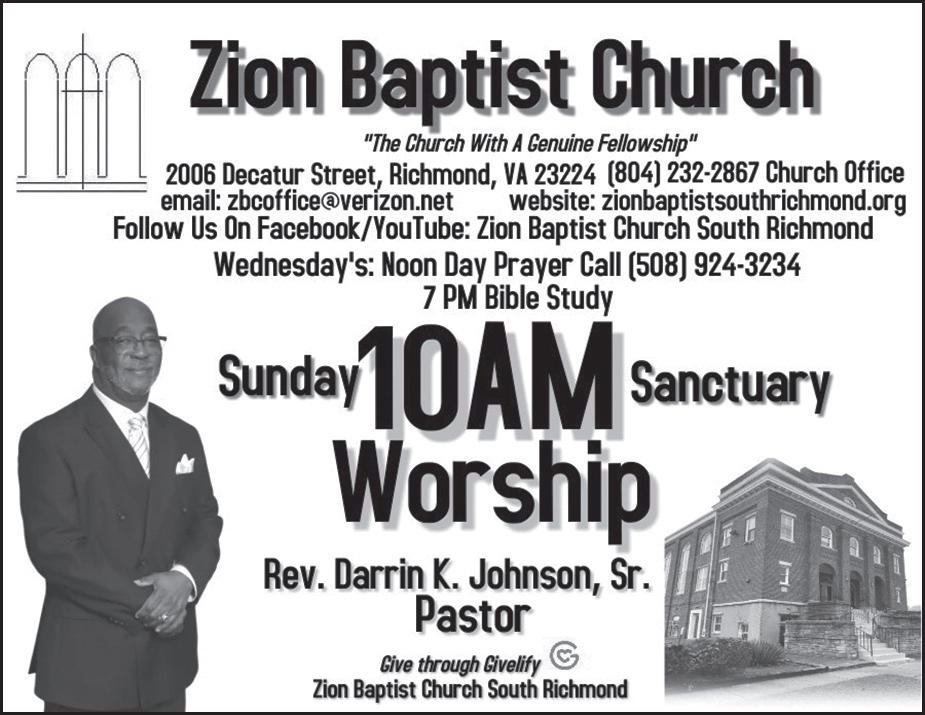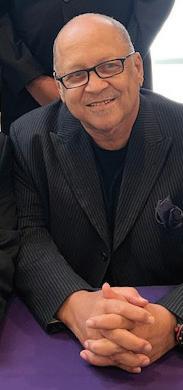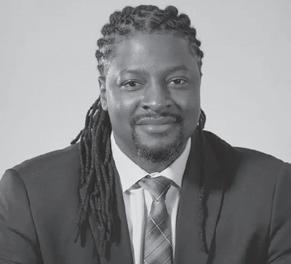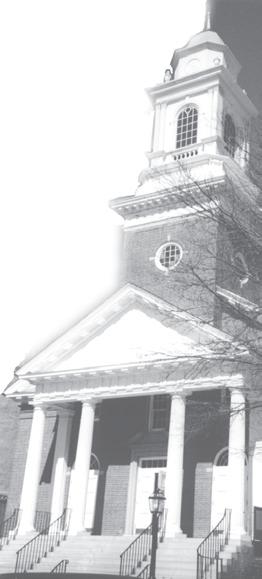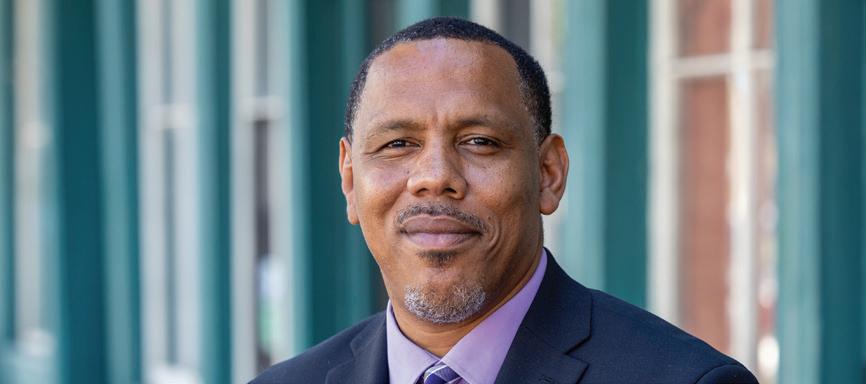





By George Copeland Jr.

which calls for transferring Gilpin Court to its nonprofit arm, the Richmond Development Corporation.
The Aug. 28 discussion followed months of disputes over the proposal, including an April vote by the RRHA Board of Commissioners to reject the transfer and a delayed vote in July, with the large turnout highlighting the public scrutiny of RRHA’s plans.
“There’s a lot of divisiveness going on, there’s a lot of questions,” East End Renaissance Council President Marvin Roane said at the meeting, “and the questions are going to be answered tonight.”
More than 100 Gilpin Court residents, RRHA officials, community leaders and visitors filled the church chapel, with Richmond police on hand as discussions ranged
from housing affordability and vouchers to resident investment opportunities.
Former City Council member Chuck Richardson urged residents to remain calm while warning RRHA to heed what he described as the concerns of a Black community that has been mistreated for decades.
“If this is good for [Gilpin residents], bring it on,” Richardson said. “But if it’s another trick, [...] let’s get it out.”
The discussion grew heated and remained contentious throughout the evening, with residents clashing with neighbors, tenant council leaders and others over the redevelopment plans and RRHA’s operations.
Despite how the discussion ended, RRHA CEO Steven Nesmith said he was pleased
After debate, council
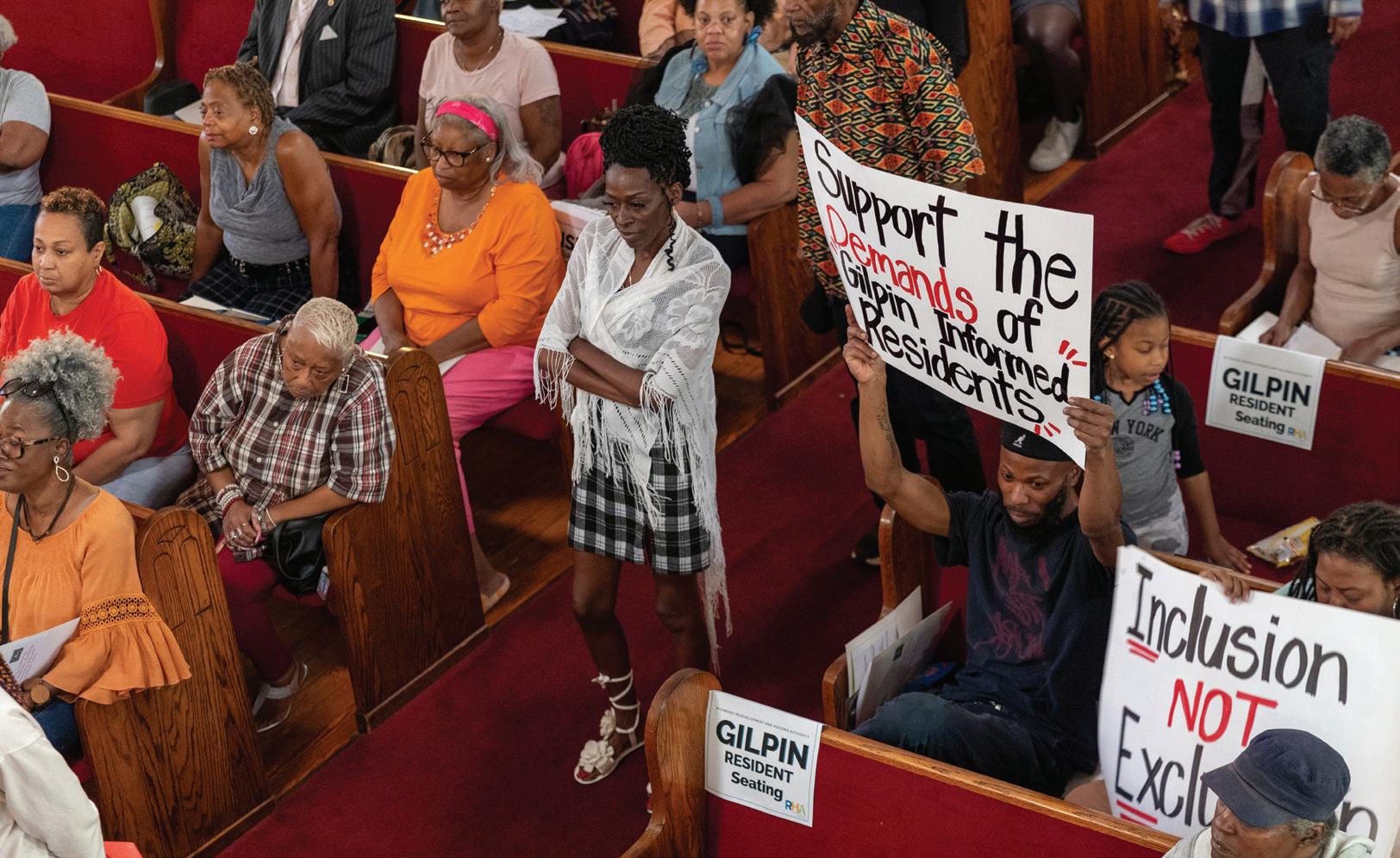
advances plan to pay wrongfully convicted man
Graham Moomaw

Councilwoman Ellen
for affordable housing, expressed
that money
believes the
Virginia nursing homes challenge Youngkin veto in court
By Charlotte Rene Woods
Within this year’s budget bill was a provision passed by the General Assembly that would have provided additional state and federal Medicaid reimbursements to nursing homes to help support staff growth efforts. The idea was among several recommendations made by a special bipartisan committee of lawmakers that toured the state last year to explore health care disparity solutions — particularly those in rural areas.
Free Press staff report
Virginia medical cannabis patients now have easier, faster and more secure access to their certifications through a new online portal launched by the Virginia Cannabis Control Authority.
The mobile-friendly CCA Portal was designed for both patients and practitioners. It strengthens protections for personal information, safeguards against fraud, and provides a simpler process for accessing and storing certifications. The system also tracks every change to maintain accurate records.
“Our new CCA Portal is a major step forward for Virginia’s medical cannabis program,” said Jamie Patten, acting head and chief administrative officer of the CCA. “It’s safer, faster and easier to use, and it helps us better protect patient information while supporting the integrity of the program.”
Patients can view their certifications online after receiving an email with instructions to log in. They can then save or print a copy for dispensary visits. The portal allows practitioners to print certifications if needed.
More information is available at cca.virginia.gov/medicalcannabis.

By Charlotte Rene Woods
Republican gubernatorial nominee Winsome Earle-Sears expressed strong opposition to a series of LGBTQ+ rights in a candidate questionnaire completed when she unsuccessfully ran for Congress in 2004. She responded “yes” to questions about whether she would vote to block same-sex couples from adopting children and oppose workplace protections for gay people, and she indicated that she believed homosexuality is an “immoral lifestyle choice.”
The survey was conducted by Public Advocate of the United States, a conservative nonprofit organization that has advocated against same-sex marriage and in favor of laws that oppose abortion, reduce federal spending, and support “faith-based initiatives.”
Earle-Sears has often spoken about her Christian faith, of which some sectors do not support LGBTQ+ identities.
The Mercury reached out to Earle-Sears’ campaign to inquire if any of her stances had evolved in the decades since the survey, formatted for “yes” or “no” responses, or if she would like to elaborate further on her answers to it. Her campaign could not be reached for an interview or a statement by the time of this publication.
Earlier this year in the Virginia legislature, Earle-Sears left a handwritten note on her signature of an anti-discrimination marriage bill that would protect same-sex unions, saying she was “morally opposed” to it. As the current lieutenant governor, she is obligated to sign bills that pass the legislature but chose to add the note. Earle-Sears’ apparent opposition to LGBTQ+ rights also seems ill-matched with one of her running mates’ candidacy and identity.
She didn’t mention Republican lieutenant governor nominee John Reid, Virginia’s first openly gay statewide candidate, during public campaign events for months until the two appeared at an event in July with Attorney General Jason Miyares. A June phone call between Earle-Sears and Reid reported by National Review this month highlighted earlier tensions behind the scenes, when the lieutenant governor “repeatedly dodged Reid’s questions” and “expressed her own distrust” of him.
Reid, whose campaign did not follow through on an interview request for this story, has spoken publicly about Earle-Sears since launching his campaign and has vowed support for her election. The two recently appeared together in a video they posted to social media where he said he was excited about their campaigns.
“It’s going to be hard to fill your shoes, or high heels as the case may be,” he said to her with a grin. He then praised her and Miyares’ roles in Gov. Glenn Youngkin’s administration.
At that point, Earle-Sears turned to the camera and emphasized how the trio would keep Virginia the “best place to live, work and raise a family” — a common refrain from Youngkin.
Pending this fall’s election results, Earle-Sears and Reid may have to put any personal differences aside in order to work together as top officials in the state — from signaling legislative priorities to state lawmakers to agreeing on state budget priorities. Governors have the final say on the state budget, but lieutenant governors preside over the state Senate and can cast tie-breaking votes on critical issues.
The backdrop of both of their campaigns is an in-progress effort to enshrine marriage protections in the state’s constitution, as now-defunct language inserted in 2006 bans same-sex marriages.
While the executive branch does not formally contribute to constitutional amendments, if the proposal to remove the defunct ban passes the legislature next year and successfully clears a statewide ballot referendum by voters, Virginia would protect gay marriage.
Advocates for the amendment stress its importance as the U.S. Supreme Court could consider undoing a decade-old ruling that federally protects such unions.
This story originally appeared at VirginiaMercury.com

Slices of life and scenes
The city of Richmond has named Ruth Morrison as its new director of intergovernmental affairs, officials announced Thursday.
Morrison, who brings more than 12 years of policy and advocacy experience across federal, state and local levels, will lead partnership efforts with regional, state and federal leaders while advancing city priorities with governmental stakeholders.
Most recently, Morrison served as policy director for the Richmond and Henrico Health Districts. Her background spans nonprofit innovation, electoral training and national environmental organizing.
“I’ve known Ruth for years, as a constituent in the city, also as a committed advocate and talented policy professional,” said Del. Betsy Carr. “She understands the complexities of the city’s relationship with the General Assembly and all the critical work we must do together to improve lives in Richmond.”
During the COVID-19 pandemic, Morrison organized containment operations for at-risk populations in Central Virginia. She worked with the Richmond City Council to establish the Health Equity Fund, combining federal, philanthropic, corporate and local dollars for community-based services.
Morrison has championed the role of doulas, community health workers and

grassroots service providers in improving health outcomes. She serves on Richmond and Henrico opioid abatement task forces, working to maximize federal settlement funds for harm reduction, treatment, prevention and recovery services.
The new director also served on Mayor Danny Avula’s transition executive team, helping outline administration priorities with community experts in health care access, climate, transportation and behavioral health.
“I’m thrilled to welcome Ruth, who will
build the strategy to align the administration’s priorities with our partners in City Council and RPS so we can advocate as one city,” Avula said. “Her leadership, passion and expertise will advance a thriving Richmond for every resident.”
City Council President Cynthia Newbille praised Morrison’s commitment to evidence-based projects and cross-sector partnerships.
“After working together to establish Richmond’s Health Equity Fund, I know that she is committed to innovative, evidence-based projects and brings a wealth of experience and knowledge to the work of bringing cross-sector partners together,” Newbille said.
Morrison has served on several boards and committees, leading collaboratives with organizations including the YMCA Downtown, the Partnership for Housing Affordability Policy Advisory Committee, WRIR and Mayorathon.
“What’s important to me about intergovernmental work is finding the win-wins that allow us to realize systems-level changes in partnership with our colleagues at the state, across the region and beyond,” Morrison said. “As a resident of the city and the parent of two RPS kids, I’m grateful to be bringing my experience to City Hall, and I’’m ready to get to work for all Richmonders.”
Morrison will begin her role Sept. 29.
Free Press staff report
Henrico County Public Schools will host its annual Life-Ready Expo on Sept. 17 at Hermitage High School, giving middle and high school students and their families a chance to explore career options and connect with local employers.
The event, open to students in grades 6-12, will feature more than 125 employers and industry leaders from fields including manufacturing, health care, trades, public service, human services and safety. Attendees can learn about career paths, educational requirements, compensation and job growth while exploring opportunities in each of Virginia’s career clusters.
The Life-Ready Expo will take place from 6 to 8 p.m. at Hermitage High School, 8301 Hungary Spring Road. Spanish, Dari and Arabic interpreters will be available.
Henrico officials describe the event as part of the school division’s broader effort to prepare students to become “life-ready” through the Henrico Learner Profile and its “Journey to 2030” strategic plan. The annual expo has been recognized by the National Association of Counties for innovative career exploration and has been

replicated in other parts of the country.
The event is sponsored by the HCPS Department of Workforce and Career Development. According to HCPS, the Life-Ready Expo is designed to give students hands-on experiences and direct
access to professionals, helping them make informed decisions about future careers and educational paths. The school system says the annual event draws enthusiastic crowds of students, families, employers and community partners from across the region.
Free Press staff report
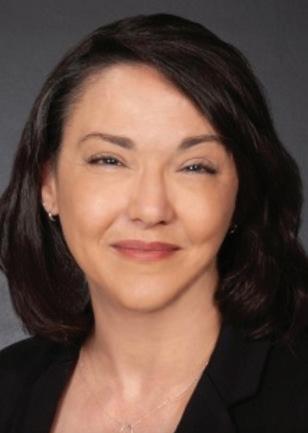
The Henrico Education Foundation has named Jennifer Boyle as its new CEO following a national search, the organization announced Tuesday. Boyle, who brings more than 25 years of nonprofit leadership experience, will assume the role Sept. 15. She most recently served as president and CEO of Junior Achievement of Central Virginia, where she led programs focused on financial literacy, career readiness and entrepreneurship.
“Jennifer brings more than 25 years of nonprofit leadership experience, a proven track record of strategic growth and a deep commitment to community impact,” said Delphine Hartsel, chair of the search committee.
Before her role at Junior Achievement, Boyle held executive positions at MENTOR Virginia and the Children’s Museum of Richmond, where she led strategic initiatives and expanded programming.
Anne Poates, who served as interim CEO during the search, praised the selection and the staff’s work during the transition.
“Her experience, collaborative spirit and understanding of both the nonprofit and education sectors make her an exceptional choice to lead HEF into the future,” Poates said.
The Henrico Education Foundation supports the county’s public schools by funding innovative programs and expanding learning opportunities. In her initial weeks, Boyle plans to meet with staff, educators and community stakeholders to help shape the foundation’s strategic direction.
The foundation provides support to ensure all students in the district are equipped for success through community collaboration and expanded learning opportunities.


Continued
is to it,” he said.
The rally was organized by RVA Indivisible and the 50501 Movement, with representatives from the ACLU of Virginia, state and national labor groups and other organizations on hand to provide resources for attendees.
The day’s events were similar to a rally held in Monroe Park during International Workers’ Day in May. That rally also featured over a thousand people marching down the streets of Richmond, and both events were part of larger protests held nationwide.
But while both protests focused on the importance of workers and building solidarity, the need for action was emphasized even more as those present addressed what they described as the exploitation they and others have faced for years, and that has intensified in 2025.
“The Trump administration is not the beginning of this,” said Richmond Democratic Socialists of America Labor Co-Chair Sean Bridge. “They have just removed the fancy slogans and the feel-good false promises from their execution.”
Speakers called for a general worker strike and criticized laws such as right-to-work while encouraging attendees to organize with fellow laborers and support those they said were targeted by the administration both inside and outside the workplace.
“Only together can we fight,” Bridge said, “but only when we’re organized can we win.”

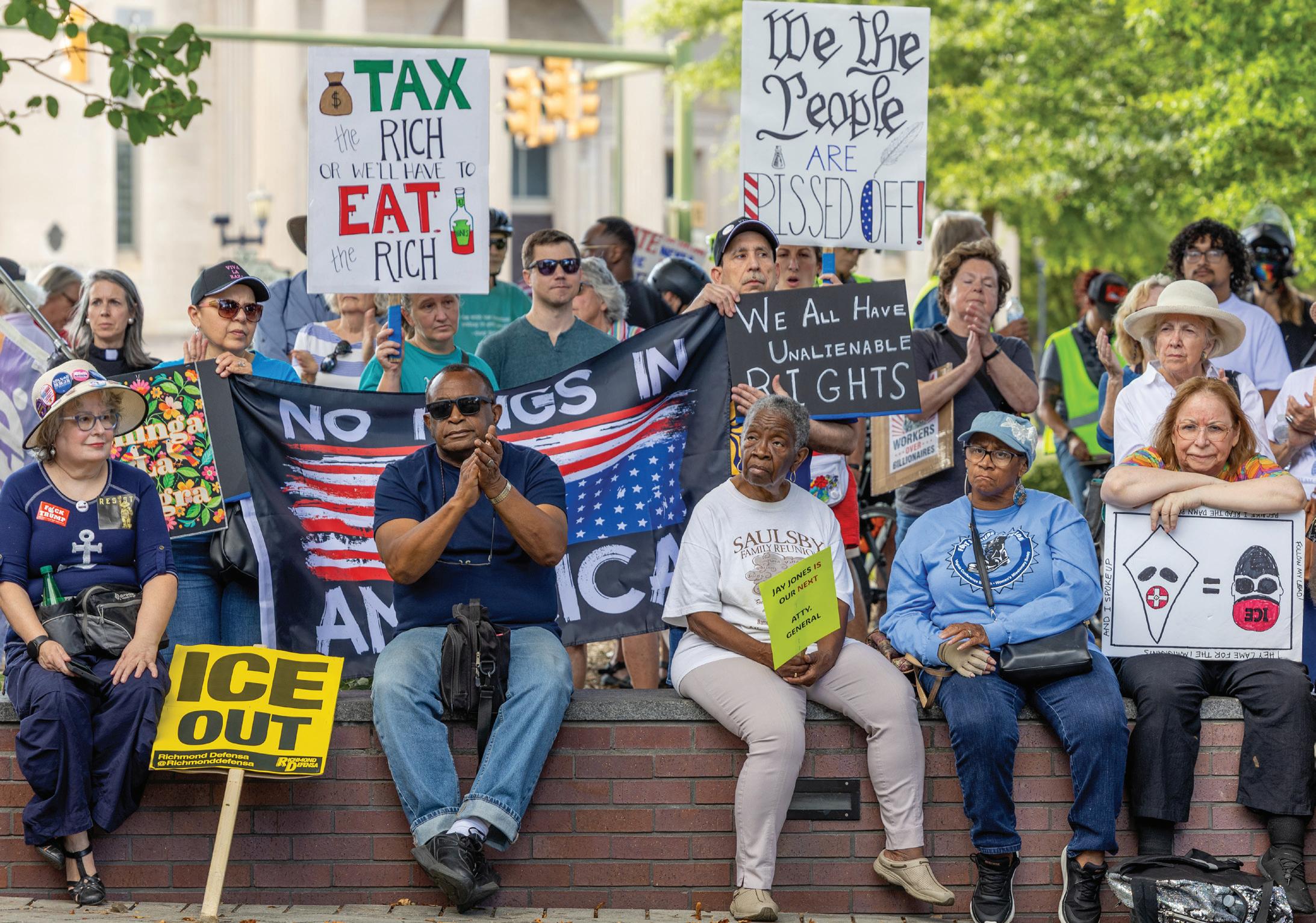
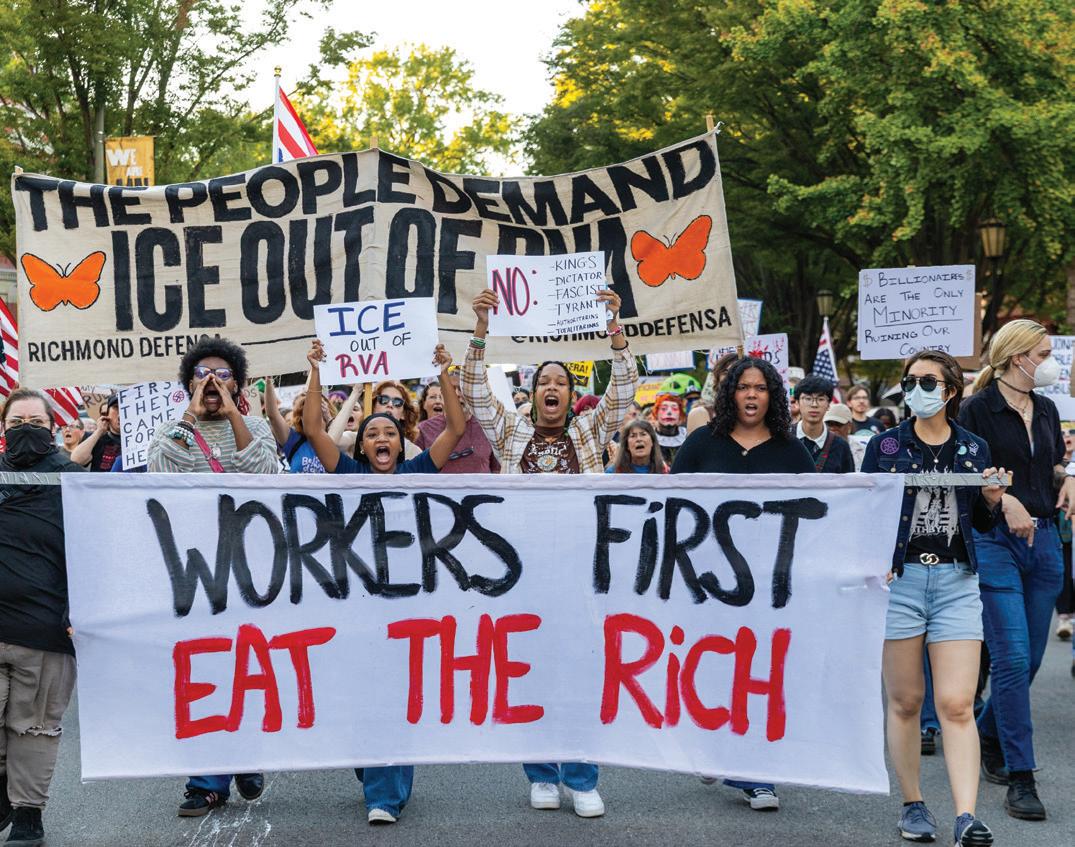

Continued from A1
with how most of it went, and saw the amount of people present as evidence of strong community engagement.
“I think 90% of this meeting went extraordinarily well, because we heard from the residents,” Nesmith said. “We want to continue listening, we want to continue learning.”
He also noted changes made to the proposal in response to previous public outcry and partnerships RRHA secured before the event, including an endorsement from the Resident Tenant Organization.
informed questions and expressed hope that the community would continue pressing officials for transparency and accountability.
Some Gilpin residents and housing justice advocates criticized what they saw as a lack of answers about the plan and its potential impact. Still, they welcomed the large turnout of Gilpin and Richmond residents asking
“I’m proud of them showing up,” Gilpin Informed Residents member Kiara Harris said. “This is not just a public housing problem, it’s a city problem.” RRHA will hold another discussion at Greater Mount Moriah on Saturday, Sept. 6 from 1 to 3 p.m.
Continued from A1
They made it clear they weren’t against paying Grimm in principle, but objected to the use of a $9.1 million pot of money that the council had previously identified as a source of funding for affordable housing projects.
“We talk about being short on funds, but when there’s $9 million sitting in a cushion somewhere, something’s not right,” said Councilor Kenya Gibson (3rd District), who voted against the measure along with Councilors Ellen Robertson (6th District) and Nicole Jones (9th District).
The 6-3 vote by the council’s Organizational Development Committee advanced the Grimm payment to the full council with a recommendation to pass it later this month.
To make the payment to Grimm, which is legally required under a state law that just took effect July 1, the city is dipping into its delinquent tax sale fund, an account that holds proceeds from the city-initiated auctions of properties long delinquent on real estate taxes.
An ordinance passed by the council in 2019 directed officials to transfer up to $1 million per year from that fund into the city’s Affordable Housing Trust Fund. Those transfers didn’t happen as envisioned, sparking tense debate Tuesday over why it wasn’t done.
“The city’s been breaking the law for a long time,” said Steve Saltzberg of Richmonders Involved to Strengthen Our Communities (RISC), an activist group that pushes for increased affordable housing funding. “And I can’t imagine that sits well with any of you. Because it’s laws that you pass.”
Chief Administrative Officer Odie Donald, who joined the city in July, said he had gotten “a couple history lessons” on the matter from Robertson, who sponsored the 2019 ordinance. But Donald defended the decisions of past policymakers, suggesting
the budgetary policy wasn’t followed each year because the city allocated tens of millions of dollars to affordable housing using one-time funding received during the COVID-19 pandemic.
“What you chose to do was something responsible,” Donald said. “You said we would fund affordable housing at the highest rate that we can using this money that we wouldn’t normally have gotten. … I don’t know that I would look at that negatively.”
Donald pointed out that the 2019 policy gave the council discretion to transfer anywhere from zero to $1 million per year from the tax sale fund to the affordable housing fund.
That explanation seemed to surprise some council members who have been serving since 2019, including Robertson. She said the city administration seemed to be relying on technical “glitches” to justify not following a policy approved by the legislative body.
“There’s a whole lot of law going on in here that I think is being stretched. That needs to be checked,” Robertson said.
Other members noted that the $9.1 million at issue went unmentioned during the budget season earlier this year, when numerous council budget proposals were shot down due to a lack of funding.
“If you had told me there was $9 million hiding in a pot, I think we could have done some really incredible things,” said Councilor Sarah Abubaker (4th District).
Tuesday’s discussion caused another flare-up in the strained relationship between Councilor Reva Trammell (8th District) and Council President Cynthia Newbille (7th District).
At one point during the meeting, Trammell held up a thick document that she said was a list of tax-delinquent properties in Richmond and their owners.
“And we’re hurting for money. Really?” Trammell said. “You’ll be shocked when you see some of the damn names on here.”
Trammell then accused Robertson and
Newbille of directing previous administrators not to try to collect unpaid taxes during the pandemic.
That drew an interruption from Newbille, who told Trammell: “You need to be accurate in your conveyance.”
Trammell said she was “sick and tired” of Newbille.
“You don’t run us,” Trammell said in a raised voice. “You don’t tell us what to do. I’ve got 25 years of service here.”
Despite the moments of conflict, council members and the administration agreed that as the Grimm matter is settled later this month, the city should revisit policies for devoting money to affordable housing.
Councilor Andrew Breton (1st District) said he didn’t want anyone to get the impression the city was “robbing” affordable housing money to pay Grimm. Instead, by solving one problem, he said, the city was discovering another.
“We need to make sure that we are not passing and leaving legislation on the books that we have no intention of following,” Breton said.
Several council members said they want the General Assembly to review and potentially reconsider the unplanned financial impacts on local governments from the new state law on wrongful incarcerations, which requires local governments to match restitution agreed to by the state in cases where intentional law enforcement misconduct led to a wrongful conviction.
Robertson, who pointed to newly released real estate tax assessments as another example of how Richmond is getting increasingly unaffordable, said she’ll look into ways to correct the 2019 policy so it’s enforceable and can no longer be treated as optional.
“We can do better,” she said. “We’ve just got to do better.” This story originally appeared at The Richmonder.org.
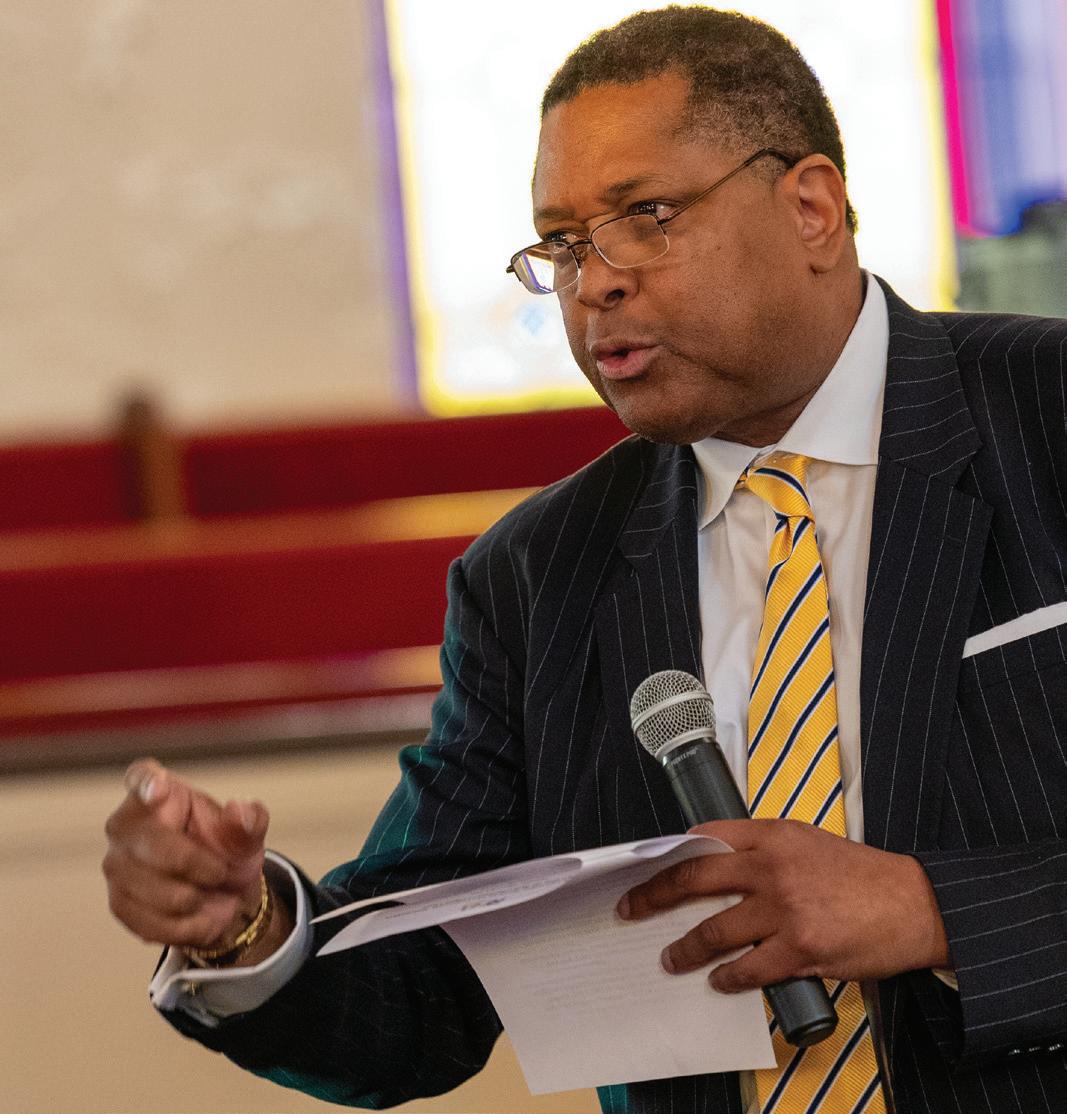
As part of the legislative process, governors review all bills that pass the state legislature. From there, they can choose to sign, amend or veto them. But Paul Nardo, the Clerk of the House of Delegates, rejected three of Youngkin’s vetoes in the spring, including the one on the nursing home reimbursements measure, a move the governor chose to ignore.

Nardo, who is also the Keeper of the Rolls, acted within his purview when he published a letter to Virginia’s Legislative Information System that he would not formally publish the vetoes. He called them unconstitutional under Virginia’s Constitution.
Nardo explained at the time that Youngkin had broken procedure by attempting to veto the provisions without also vetoing the budget appropriation that contained it. It’s the “unconstitutional” argument that is at the core of the pending lawsuit by the nursing homes. VHCA-VCAL wants the state’s top court to force Youngkin to comply with the law.
In a release, the group’s president and CEO, Keith Hare, said the cohort “had hoped it would not come to this.”
“This legal action is really about patient care for some of our most vulnerable fellow citizens. It is imperative that nursing homes have the resources they need to appropriately staff facilities and provide their residents with the high-quality care they deserve,” Hare said.
Political analyst Stephen Farnsworth predicted at the time of the veto back-and-forth in the spring that the dispute “could end up in the courts like just about everything else these days.” This story originally appeared at VirgniaMercury.com.
By Fiona André Religion News Service
On Thursday, Aug. 28, Black faith leaders, activists and protesters descended on Manhattan’s financial district to denounce efforts by the Trump administration and some private companies to abandon diversity, equity and inclusion initiatives, known as DEI.
The demonstration, organized by the Rev. Al Sharpton’s National Action Network, also marked the 62nd anniversary of the Rev. Martin Luther King Jr.’s March on Washington.
“DEI is the civil rights fight of our generation, and will make the difference in what the future of America looks like. … On August 28th, as we commemorate the March on Wash-
going back,” Sharpton said.
The rally cemented a monthlong boycott campaign promoted by Black church leaders across the country to denounce private companies abandoning DEI policies.
Thousands of protesters had flocked to Lower Manhattan early Thursday, many traveling from out of state by bus for the occasion. They gathered at the African Burial Ground National Monument on Foley Square, heading toward Wall Street shortly after 10 a.m.
As they walked downtown, protesters held signs reading “What Trump will erase, we will replace” and chanted: “No DEI, no dollars. No justice, no peace.” During the hourlong march, some protesters hummed the gospel anthem “We Shall Overcome.”
Halfway through the march, the
icon’s son. “We must create the climate where people can raise themselves by their own bootstraps. … We must create a climate where housing is affordable. Where health care is available.”
Though all of the major candidates in New York’s November mayoral election were invited, noted Sharpton, only Mamdani attended the event. In his address, the 33-year-old democratic socialist candidate pledged to keep King’s legacy alive by fighting for an affordable New York for all.
“How is it that we have still yet to answer the question that Dr. King posed all those decades ago? ‘What good is it to have the right to sit at the lunch counter if you can’t afford a hamburger?’ Our freedom is only as good as our ability to exercise it. … I tell you that every day I will wake up

ington, we will continue the fight by taking it to Wall Street,” read an announcement for the event.
As Sharpton took to the stage on Whitehall Street, near the end of Broadway in Lower Manhattan, he addressed companies that have abandoned their long-standing DEI initiatives in the wake of White House pressure, urging Black Americans to fight back.
“We marched for your offices because we know your address, and we will march and keep coming to you until we turn the economic inequality in this country around. We’re not
procession halted in front of the Charging Bull, a bronze sculpture that symbolizes Manhattan’s financial power. During the procession, mayoral candidate Zohran Mamdani joined the marchers at the head of the procession alongside Sharpton and members of King’s family.
Tying the day to his father’s legacy, Martin Luther King Jr. III opened the rally when it reached Whitehall Street, standing with his wife, Arndrea Waters King. “Something is wrong with this nation, all right? My father would say that something is wrong,” said the civil rights
with Dr. King’s dream at the forefront of my mind.”
The speakers who followed, including the Rev. Samuel Tolbert Jr., president of the National Baptist Convention of America International, and the Rev. David Peoples, president of the Progressive National Baptist Convention, encouraged protesters to stay firm in their boycott of companies that abandoned DEI initiatives after the Trump administration took office.
In February, Black faith leaders joined a boycott movement begun by the Rev. Jamal Bryant, pastor of New
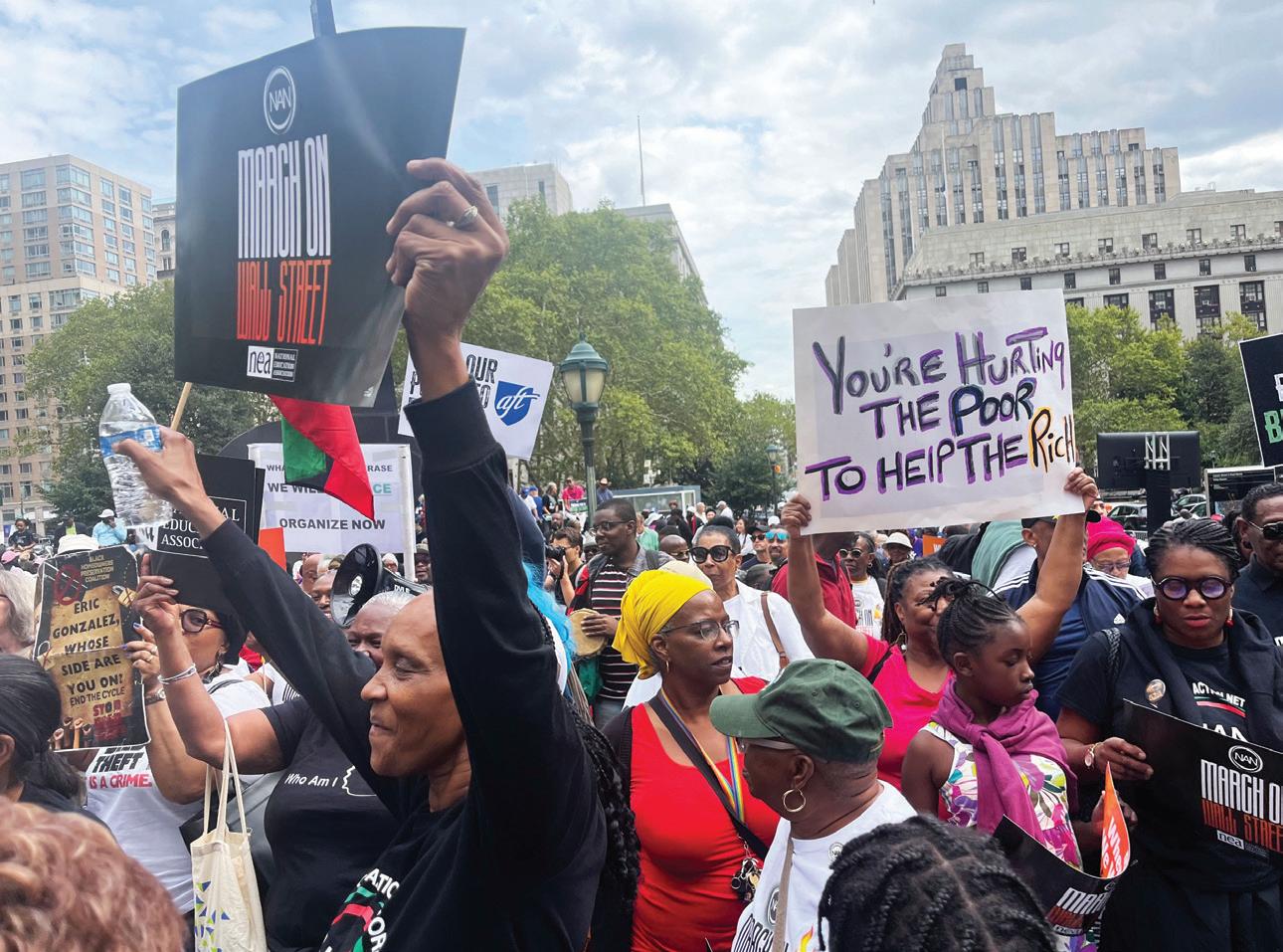
Birth Missionary Baptist Church in Atlanta, prompted by discount chain Target abandoning its DEI initiatives. Bryant challenged his peers to lead their congregations in abstaining from buying from Target during Lent, the 40-day period that leads to Easter.
In recent months, the chain has experienced weak sales and declining stock levels. Last week, Target’s CEO, Brian Cornell, stepped down.
“We will take our dollars where we’re respected, and we will close down where we’re rejected. … We will shop with who does business with us. We will walk with who walks with us. We will stand with who stands with us. And we are not afraid of Trump. We’ve been beaten giants since David,” Sharpton said.
He called on protesters to show resilience in the months to come, as he pointed out they stood on the very place where African slaves used to be sold. “We’ve come back, the children of our ancestors. We’ve come back ready. Ready to spend our dollars. We’re not slaves anymore. We’re not going back on the slave market.
Donald Trump, get ready for the fight of your life,” he said. Many speakers noted how the recent abandonment of DEI initiatives disproportionately affected Black women. Nearly 300,000 Black women
have been pushed out of the workforce within three months, partly due to the policies, according to the Bureau of Labor Statistics.
“We have been pushed out of the workforce, but we are strong people. We are faith people,” said Stacie NC Grant, president of Zeta Phi Beta Sorority.
As the march ended, the Rev. Boise Kimber, president of the National Baptist Convention USA, prayed over the crowd. The administration’s first months, he said, though challenging, shouldn’t discourage attendees.
“Lord, we pray for the healing of the soul of our nation from the disease of human exploitation and its root cause, the love of money,” Kimber said as attendees bowed their heads and closed their eyes. Americans, he said, must repent for “making profits be more important than people, and for making the accumulation of wealth be more important than the well-being of those made in God’s image.”
The Rev. Michael Jordan of New Era Baptist Church in Birmingham, Alabama, who attended the rally, said recent hits at DEI initiatives are setting Black Americans decades behind.
“I’m a preacher of social justice, I preach against social injustice. The Trump administration has made them bamboozled, not just Black folks, but also poor white folks,” he said.

•
•
•
•

A few weeks ago, when Gov. Glenn Youngkin threatened to withdraw state funding from Richmond over unpaid restitution to Marvin Grimm, a man wrongly convicted in 1975, questions piled up.
Why hadn’t the city already paid him? Why did officials seem surprised to learn of the debt? And where would Richmond find the $5.8 million it owed?
We addressed another question in this space: Since when did the governor become so concerned with justice for the formerly incarcerated? As we said then, we’re glad he has decided to join the social justice movement, and we hope his concern extends to people who don’t look like they’re part of his political base.
But back to the money. The question of where the city would find it was answered when officials announced there was $9 million sitting idle in something called a “delinquent tax sale fund.” That didn’t sit well with some city council members.
“We talk about being short on funds, but when there’s $9 million sitting in a cushion somewhere, something’s not right,” said Kenya Gibson of the 3rd District.
Another councilor raised the possibility of what could have been done with some of the funds if the council had known they were available.
“If you had told me there was $9 million hiding in a pot, I think we could have done some really incredible things,” said Sarah Abubaker of the 4th District.
We agree. And we’ll go a step further: If the city can suddenly shake loose millions to settle an old debt, then its cries of poverty on schools, housing and public safety ring hollow. Finding money between the cushions while telling taxpayers there’s not much left is not the way to govern.
The Marvin Grimm settlement exposed this problem by accident. It makes you wonder how much more of the city’s cash is tucked away in dark places where people haven’t thought to look.
Richmond shouldn’t need gubernatorial threats to do the right thing. And it certainly shouldn’t take a high-profile settlement to show there’s money lying around, waiting to be used.
There’s a belief that people of a certain stature move on from this mortal plane in groups of 3. This idea has cemented itself into a common cultural notion, and that says a lot about the human brain’s need to find patterns in this thing called life. Making sense of things, even when there isn’t any to be found, brings us comfort in a time of loss.
Richmond’s athletic community could use some comfort these days. In the last few weeks, three men who were pillars of strength on the basketball courts of yesteryear — and mentors long after their playing days — have quietly passed from the scene, their departures a closing of a chapter in the city’s rich sporting history.
Clyde “The Glide” Austin — a hometown legend of Maggie L. Walker High who dazzled audiences at N.C. State and with the Harlem Globetrotters, Austin left an indelible mark on Richmond. Known for his smooth moves and generous spirit, he inspired not only with his athletic flair but also through his guidance and resilience. Though his life took difficult turns, the memories of his grace under pressure and the smiles he brought to fans will remain.
Coach George Lancaster — “Coach Lan” spent 37 seasons shaping Highland Springs High into a powerhouse. With more than 700 wins and two state championships, he was more than a coach; he was a mentor, role model and steady presence in the lives of young athletes. Even after retirement, his influence persisted — he returned to his roots, coaching in his hometown and giving back to the game and community that shaped him.
Rudy Cunningham, known to fans as “Rudy the Reject,” anchored Maggie Walker’s front line during that golden era — an imposing 6-9 rim protector celebrated as one of the area’s best shot blockers. He passed along his wisdom to the next generation as coach for basketball camps in Henrico County. The idea would rub off on his son, who coached standout guards at John Marshall.
Clyde Austin, George Lancaster and Rudy Cunningham remind us that greatness isn’t only measured on the stat sheet, it’s measured in the lives they touched and the communities they lifted. The city’s basketball story is richer because of them, and their legacy will echo long after the final buzzer.

When Donald Trump defeated Kamala Harris, he won by only 1.5 percentage points overall while receiving 312 electoral votes. Among Hispanic voters, Trump won 48% of the vote after losing to Joe Biden by a margin of 61% to 36% in the 2020 presidential election. In 2024, Trump won 15% of Black voters, up from 8% four years earlier.
migration problems.
“What I see happening to our immigrant population embarrasses me, and you have not raised a voice to complain about it,” one attendee told Steil.
“Where do I see your leadership? I see no leadership. I see following Trump 100% of the time.”

With the current gerrymandering fight, both political parties are positioning themselves for next year’s midterm elections. For Hispanic and Black voters who supported Trump in 2024, one question comes to mind: Are they getting what they expected from a second Trump term?
People are waking up, and they are not liking what they are seeing. As a result, constituents’ anger over ICE raids in their districts has become intense during town halls in congressional districts represented by both Democrats and Republicans.
It was the central focus of questions at Wisconsin GOP Rep. Bryan Steil’s town hall in late July, as constituents attacked the congressman’s efforts to blame former President Biden’s policies for the country’s im-
The biggest crowd reaction of the night came in response to Steil’s introductory remarks celebrating border security, prompting an attendee to shout, “We are all immigrants.”
In Virginia, Democratic Rep. Jennifer McClellan held a town hall intended to focus on issues affecting senior citizens, but frustrations over the Trump administration’s handling of immigration dominated the meeting, diverting it from topics such as Social Security and Medicaid.
Among the only times McClellan drew applause was when she condemned the Trump administration’s handling of deportations and its use of “Alligator Alcatraz,” a migrant detention center in Florida that a federal judge has ordered closed.
“I hope that when we enforce our immigration policy — whether it’s who we detain, who we deport — that we do so consistent with American values of due process and compassion,”
McClellan said. Many people agree with McClellan concerning due process and compassion from a moral perspective, but due process and compassion from government often get lost in partisan politics. The same is true with fair elections, checks and balances, and holding elected leaders accountable. How would MAGA Republicans respond if Barack Obama used the same authoritarian tactics we see used by Trump?
The nation’s democracy is shaky, but it still exists despite gerrymandering in Texas and California. Ironically, with all of the anger over ICE activities and deportation, Republicans are counting on increased support from Hispanic voters to win five newly redrawn congressional districts. Republicans specifically increased the share of Hispanic voters in three of the five targeted districts, capitalizing on recent political shifts to the right among Hispanic voters in South Texas and urban areas like Houston and San Antonio. Will Republicans be able to hold onto those gains, given the backlash GOP congressional lawmakers are receiving?
A July national poll by Equis Research found that one-third of Hispanic voters who backed Biden in 2020 and then Trump in 2024 are planning to vote for a Democratic congressional
Trump’s attack on the Smithsonian reveals fear of history
Of the 21 museums under the umbrella of the Smithsonian Institution, one in particular seems recently to have rubbed President Donald Trump the wrong way.
“The Smithsonian is OUT OF CONTROL,” Trump fulminated in a social media post Tuesday, “where everything discussed is how horrible our Country is, how bad Slavery was, and how unaccomplished the downtrodden have been — Nothing about Success, nothing about Brightness, nothing about the Future.”
Mercy me.
Imagine that!
A museum dedicated to African Amer ican history and culture that dares to include some exhibits about slavery.
special. It’s something that, frankly, if you want to know the truth, it’s doing so well that everybody is talking about it.”
Ah, what a difference eight years makes!
The president’s recent comments came a week after the White House sent an ominous announcement to the Smithsonian: Its museums would be required to revise any content that the administration finds problematic in “tone, historical framing and alignment with American ideals” — and they have 120 days to do so.

If you haven’t seen the real thing the experience is nowhere near as gloomy as the president recollects. They even have Chuck Berry’s red Cadillac Eldorado on display, speaking of “success” and “brightness.”
Well, hard as this may be to believe, the president’s description of the Smithsonian’s National Museum of African American History and Culture falls woefully short of accuracy — especially in comparison to his remarks at the museum’s opening in 2017.
“I’m deeply proud that we now have a museum that honors the millions of African American men and women who built our national heritage,” he said, “especially when it comes to faith, culture and the unbreakable American spirit …”
”And it really is very, very
Black Americans are not the only folks whose depictions are
receiving special scrutiny. For example, a painting of refugees at the U.S.-Mexico border that was a finalist in a contest at the National Portrait Gallery, another Smithsonian-affiliated museum, was singled out for denunciation.
“Refugees Crossing the Border Wall Into South Texas,” a 2022 work by painter Rigoberto A. Gonzalez, shows a family in flight from some unseen peril, scaling a wooden ladder at what appears to be Trump’s “big, beautiful wall” at the U.S.-Mexico border.
It may be art to you or, at least, to me. But to the art critics who staff the “Official White House Rapid Response account” on X, this was nothing more than “the perfect example of what President Trump means when he says the Smithsonian is ‘OUT OF CONTROL.’”
Art, like history, must never stir troubling thoughts or any
critical impulses in our heads. To go back to Trump’s original condemnatory post on Truth Social: “This Country cannot be WOKE, because WOKE IS BROKE. We have the ‘HOTTEST’ Country in the World, and we want people to talk about it, including in our Museums.”
It’s not just our national museums that are “out of control.“ Those were the words Trump used to describe crime on the streets of Washington, D.C., to justify ordering the district’s National Guard to police the nation’s capital, subsequently joined by guardsmen from Louisiana, Mississippi, Ohio, South Carolina and West Virginia, all of which have Republican governors.
Some of my local media colleagues soon discovered that many members of the guard came from cities that happened to have higher crime rates than the district, where officials and media have been reporting a three-year decline in violent crimes.
Some members of Team Trump accused the city of reporting “rigged” numbers, much like the president attributed recent reports of weakness in the job market to “rigged” data, and then fired the Senate-confirmed Bureau of Labor Statistics official responsible for computing those numbers each month.
Fortunately, the resemblance to a police state has not been totally debilitating. If you can stand the seasonal heat, I still recommend the city to tourists, especially the great museums.
Even Trump has declared the city to be “safe again.”
The writer is a columnist for the Chicago Tribune.
candidate. Another one-third of these voters are undecided. The gerrymandered district in Texas comes from a direct request from Trump, whom Illinois Gov. JB Pritzker called a “wannabe dictator.” In a democracy, every citizen has basic rights that the government should not take away. Free elections through a fair system of representation are among those rights, which gerrymandering undermines. Trump is targeting political opponents, purging top generals from the military, imposing his will over the arts, installing loyalists to dismantle the federal bureaucracy, and taking power from Congress while expecting the Supreme Court to also fall in line. Because the U.S. Constitution is not partisan, Republicans and Democrats who have protested Trump’s policies should also be protesting Trump’s authoritarianism. The writer is the author of “God Bless Our Divided America.”




We all struggle to find meaning in our work, but this is mostly a late 20th-century/21st-century phenomenon. Historically, many worked because they had no choice, and meaning was a footnote, not central.

The French philosopher Albert Camus reportedly said, “Without work all life is rotten but when work is soulless, life stifles and dies.” Now, historians are suggesting he may not have uttered or written those exact words but been paraphrased by one of his biographers. No matter. The sentiment is a pertinent one, especially as we lift up Labor Day, its history and the role that Black women have played in the labor history of our nation — even in the days after the holiday. There is meaningful work and there is soul-crushing work, and the challenge Camus poses is how to find meaning in routine, how to embrace joy in everyday tasks. Why do we work? Partly to make a living, to earn money, to live, to provide the means to pursue our joy. Why do we work?
Because our work makes a difference when we are organizers, cultural workers or paid activists.
Consider the Black woman “domestic.” More than half of all Black women held such jobs into the 1940s. We didn’t love this work. It was all we could get. We nurtured white children without having the luxury to
nurture our own. We were the backbone of white households, cooking, cleaning and more. And in the process of our work, we were demeaned, often given used clothing instead of wages, often sexually assaulted by depraved white men who headed households. But we worked because we had to. We worked because we wanted our babies to live.
Our nation has been celebrating Labor Day since 1894, after New York’s Central Labor Union drew public attention to
the ways that many worked. Then, many workers, children included, labored from sunup to sundown (and beyond), six or seven days a week. There were strikes, labor actions and eventually Labor Day, a recognition of workers. Sadly, a focus on Black workers was absent in these initial celebrations.
Most workers were exploited. In 1904, the National Child Labor Committee (which I once chaired) was founded to visually document the way children — and I mean little children — were treated as workers, in the mines, in the fields and elsewhere. Children lost their lives and also lost their childhoods when they did backbreaking, bone-chilling work.
Louis Hine did an exceptional job documenting children at work. A challenge, though, was that those passionate about labor and labor rights too often
excluded the contributions of Black workers. If we want to recognize Black workers, we must start with enslavement and the unpaid work of Black people that provided a foundation for this nation. At every juncture in our history, we find the work of Black people, including Black women, pivotal.
The flawed leadership of our nation would currently erase this history and celebrate American exceptionalism, but the reality is inconvenient. Not only would there be no America without the labor of enslaved people, but there would also be no wartime victories without the work of Black women. I am thinking of the invisible warriors — the Black women who were “Rosies,” women who worked in wartime industries as welders, machine assemblers, riveters and other assembly-line workers. They faced discrimination
on all sides, especially from their white “sisters,” who even protested having to use the same bathrooms as Black women. (Our nation’s obsession with toilets is another story.) The stories of the Black Rosies have mostly been swallowed, and there are those who lift them up because they are important. As many as 600,000 Black women were part of the war effort.
Gregory Cook has amplified the work of the Black Rosies in his film “The Invisible Warriors.” His mom was one of the Rosies, and he was moved enough by her story to document it. In his work, he has lifted up the Black women whose silent contribution to the war effort has been overlooked, sometimes maliciously. There are those who would erase this contribution to our nation, which is why we must lift it up. For some, Labor Day means
the end of summer; for others, time to get back to school. For me, it is a reminder of the foundational contributions that Black people have made to our nation, and especially the hidden work that Black women have provided, against all odds. The Black Rosies are among other warriors — the nurses; the Black women enlisted troops; the Black women like Dr. Olivia Hooker, the first Black woman in the Coast Guard who fought for the right to fight. It is galling that there are efforts to ignore or erase this extreme patriotism. It is our duty to lift up the Black Rosies and other Black working heroines on Labor Day and beyond. They may sometimes have worked without joy, but they always worked with purpose, and we are the richer for it. The writer is an economist and author.
Bessie Lane Reconstruction Project Chesterfield County






Wednesday, September 10, 2025, 6 – 7:30 p.m. * Ettrick Elementary School 20910 Chesterfield Avenue S. Chesterfield, VA 23803
*If the school is closed for any reason, the hearing will be canceled and rescheduled. Chesterfield is seeking input on two options for improvements to Bessie Lane. At the meeting, representatives will be available to review and discuss the options and take written or oral comments. Written comments can also be submitted to Chesterfield County Transportation Department by mail, (P.O. Box 40, Chesterfield, VA 23832), or by email, (transportation@chesterfield.gov), on or before October 10, 2025.
Project information, including the two options, is also available online on Chesterfield s website at https://www.chesterfield.gov/574/Transportation under All Transportation Projects or by appointment at the Community Development building at 9800 Government Center Parkway, Chesterfield, VA 23832. Please call to set up an appointment: (804)748-1037.
Chesterfield County and the Virginia Department of Transportation ensure nondiscrimination in all programs and activities per Title VI and Title VII of the Civil Rights Act of 1964. Persons with questions about the facility ’s accessibility or the need for reasonable accommodations should contac t Transportation at 804-748-1037.


By Dean Mirshahi VPM
Despite the uncomfortably hot July night, hundreds of Richmonders huddled around a wrestling ring that was set up for RVA Pro Wrestling’s “Wrestle Riot.”
It was the group’s 11th sold-out show since the local promotion started in 2023, and fans couldn’t stop talking about the last match and the night’s two championship battles at Hardywood Park Craft Brewery off Ownby Lane.
They’ve eagerly staked out standing room-only spots in the brewery’s backroom, where decorative beer barrels, brewing tanks and supplies line the walls.
Charles League, a fan, said the passion that pushes wrestlers to put their bodies on the line is unmatched. It also makes packing into a warm room worth it.
“I mean these guys are out here, they’re doing something harder than what we’re doing, so we can cheer for a little bit,” League said.
It’s that shared commitment and the connection between wrestlers and fans that has driven the growth of the local pro wrestling scene and helped create a uniquely Richmond experience.
“The crowd is this almost additional character to the show,” said Stephen Brown, another local fan.
‘Lose yourself in it’
One of the architects of RVA Pro Wrestling is Timmy Danger — aka Tim Stewart, the group’s co-CEO, when he’s not wrestling.
As a child, he watched World Wrestling Federation events with his uncle and grandparents.
He said seeing the fourth wall between the wrestlers and fans being broken is what drew him in. The interactions — between performer and the crowd, each feeding off each other — underscored the fans’ importance to wrestling, for Danger.
“If the crowd is really invested in something, you’ve got to keep it going. If the crowd doesn’’t like it, you’ve got to end it,” Danger said.
“There’s really nothing like it in that regard. And you have to know how to take that momentum and use it.”
Danger, who trained at the storied Ohio Valley Wrestling school in Louisville, has come a long way. He’s wrestled in makeshift rings in people’s backyards and traveled hours to different states for shows with plans that completely changed once he arrived.
RVA Pro wrestlers have detailed backstories, unique costumes and


catchphrases that ignite memorable chants from local fans — who add spur-of-the-moment chants like “This is awesome!” and “RVA!”
Among the fan favorites is Emma Kelsey, who wrestles under the moniker Erica Leigh, and Nicholas Throckmorton, better known as Sledge Gibson. Leigh stares into the crowd when she enters the ring, eyes wide with bold intensity, pink strands in her hair as she holds her hands up like claws.
On this night, she faced off against Jordan Blade — another local favorite — for the women’s championship belt: the night’s co-main event.
Leigh didn’t grow up a pro wrestling fan. Sitting beside Danger, she said initially she thought it was something the “weird kids” liked. But then she watched it as an adult with an open mind.
“At that moment, it all clicked for me. I heard Jerry Lawler yelp on commentary, and I was like ‘Oh, it’s funny!’ And then from there I just couldn’t get enough and I was like ‘I think I can do that actually.’ I tried it, and I can do it,” Leigh said.
Ahead of fighting for the men’s heavyweight title against Drew Hood in the night’s other main event, Gibson reflected on what first got him into professional wrestling.
“I think it was WrestleMania 30, 31, one of those. It was Roman Reigns versus Brock Lesnar. For whatever reason, my brain said that would be very fun to do,” Gibson said while
setting up his merchandise.
“Then I found a wrestling school and got myself some training, and here I am almost nine years later still doing these shenanigans.”
Sledge Gibson towers over most people, entering the ring with a babyface smile as the crowd chants “Clap them cheeks” — a call for his signature move — which I’ll leave to your imagination.
For all three, the love that makes them jump into a wrestling ring while costumed in front of a crowd and launching from the top rope isn’t easy to explain.
It hurts, but Leigh said there’s nothing like it.
“You might wake up real crunchy the next day, but there’s just something about it that’s so much fun,” Leigh said.
For Gibson, pro wrestling offers him freedom to express himself through characters and storytelling.
“It’s just a feeling that nothing else matches,” he said. “For however many hours the show is, you can just turn off and be somebody else and that’s pretty cool.”
For fans like Brown, it provides a similar escape.
“You kind of lose yourself in it, where you go in and as an adult watching wrestling you can just believe that it’s real just as you would believe what’s going on any TV show is actually happening,” Brown said.
The ring of connection
How wrestlers and fans interact is truly unique. They get up close and heckle each other — arguing mid-match, cursing in each other’s faces. Leigh said pro wrestling relies on that bond.
“The connection between wrestlers and the crowd is the whole thing,” she said. “That’s wrestling.”
This link is felt by local fans like League.
“I think the biggest thing is that you are part of it as a fan,” he said. “You get to cheer. You get to boo. And they need that energy for the show to work.”
When the crowd isn’t feeling what they’re doing, it can be tough — and awkward.
But Danger and Leigh said failing is a part of pro wrestling. Without a leap of faith, Leigh said, you won’t know what works and the joy of finally realizing it in front of a crowd.
“If you never go out there and feel that chest-sinking pressure of no reaction, you won’t know how to get yourself over, which is basically saying you won’t make people like you,” she said.
“Failure’s a good thing,” Danger said. “You’re supposed to fail, cause now you know what not to do.”
After experiencing failure, doing shows in front of seven people, and traveling to other states to wrestle, Danger started RVA Pro Wrestling with his business partner Neil Sharkey.
Danger said he was confident there were pro wrestling fans in Richmond
Free Press staff report
Virginia Union opened its 2025 season with a statement. Behind a relentless rushing attack and a stifling defense, the Panthers rolled past Miles College 45-3 on Sunday in the Black College Football Hall of Fame Classic at Tom Benson Hall of Fame Stadium.
Running back Curtis Allen set the tone for Union, piling up a Classic-record 185 rushing yards and two touchdowns on 17 carries. His highlight came midway through the second quarter, when he broke several tackles and hurdled a defender on a 53yard scoring run that put the Panthers up 10-0 and ignited the offense.
Quarterback RJ Rosales complemented the ground game with efficiency, completing 9 of 15 passes for 120 yards and a
touchdown while adding 54 rushing yards and another score. Virginia Union rushed for 375 yards as a team, overwhelming Miles in the trenches.
After a competitive start in which Miles managed a first-quarter field goal attempt, the Panthers seized control and never let go. Union scored 35 unanswered points, putting the game out of reach before the third quarter ended.
VUU’s defense intercepted the Miles quarterback twice. The Golden Bears never established a running game, finishing with just 50 rushing yards.
Virginia Union’s defense kept pressure on Ivory all afternoon, forcing turnovers and limiting big plays. Dominance on both sides of the ball allowed the Panthers to dictate the pace and showcase the balance that made them CIAA champions
last season.
“Coming out of spring practice, we wanted this team to form their own identity,” said VUU head football coach Dr. Alvin Parker. “I couldn’t tell you what it was before today. All I could tell you is that we had a good team, but I didn’t know what the identity was. But they showed me a little of what it is today, with some dominant line of scrimmage play.”
The win marks Virginia Union’s second appearance in Canton and its second victory in the Black College Football Hall of Fame Classic.
Virginia Union (1-0) will look to build on its explosive opener in two weeks when the Panthers travel to Jacksonville, Florida, to face Edward Waters University in the Unity Classic at 4 p.m. Saturday, Sept. 13.

waiting for a local promotion.
But he focused on drawing a larger audience by hosting events at local spots — including The Diamond — and adding live musicians. Now, RVA Pro has a production team, interns and just worked with the City of Richmond on a free show at Dogwood Dell.
“I wanted to do something I knew people would gravitate towards and they would gravitate more towards a party than ‘We’re having wrestling at the armory,’ especially in Richmond,” Danger said.
Elliot Jaspen, who goes by EJ, is a lifelong wrestling fan who runs the unofficial RVA Pro Wrestling podcast, a fan page on Facebook that includes interviews with favorite wrestlers.
“I like the compelling storylines, the competition and, most importantly, the way RVA Pro and their crowd gel together to make these nights fun,” he said ahead of the latest Hardywood show.
EJ said RVA Pro and its fanbase have shown there is a hunger for pro wrestling in Richmond.
“The subculture also of wrestling in a brewery is so Richmond,” he said. “I mean, that is classic RVA right there.” With sold-out shows, the Richmond area has seen a recent professional wrestling boom, with smackdowns hosted by promotions such as RVA Pro and Commonwealth Championship Wrestling.
“I want the wrestlers to know I’m there. I want them to hear me,” League said. “I want them to know they are doing it for the love of the game, and I want to show my appreciation because that’s what they’re looking for.”
Where Richmond’s wrestling scene goes from here will ultimately depend on how the fans respond, Danger said, but he imagines it can be one of the bigger independent promotions in the country.
Danger and Leigh noted RVA Pro’s party atmosphere, but also how it embraces its mix of personalities and spotlights women wrestlers and matches instead of propping up stereotypes.
Leigh said wrestling has always had a diverse fanbase, despite the past reliance of certain tropes in storytelling, and the crowd she sees in Richmond proves that.
“There’s some little bubble of passion and joy and energy and I don’t know, it’s very, very different than going somewhere else and doing a job for somebody and coming home,” Leigh said.
“This feels like our thing, Richmond’s thing.”

By Dan Elson
The Richmond Roadrunners will meet the Virginia Vitesse in the first round of the Women’s American Basketball Association league playoffs, marking their second matchup in recent days.
The teams last faced off on Aug. 31 when the Roadrunners edged the Vitesse 92-91 on a game-winning three-pointer by forward and guard Andrea Barbour.
Roadrunners coach Barvenia Wooten said her team’s offensive depth gives them an edge heading into the rematch.
“We’re now clicking,” Wooten said. “We’re developing some good chemistry right now with the team offensively, and I feel very strongly that everyone really understands their roles.”
Wooten added she is confident Richmond can beat the Vitesse again.
“The team has been doing a great job with doing our homework and taking a look at the scouting report,” she said.
Opponents face a unique challenge against the Roadrunners, Wooten said, because scoring is spread across multiple players.
“Everybody can shoot the ball,” she said. “That’s the great thing about our team.”
The first-round playoff game is scheduled for 3 p.m. Saturday, Sept. 7, at Virginia Union University.
In his role as lead organizer for the Virginia Consensus for Higher Education in Prison, Kenneth Hunter uses his own story to advocate for educational opportunities for incarcerated students. Convicted for a 1999 nonviolent drug offense, he spent 22 years behind bars.
“They made me seem like a big-time drug dealer,” Hunter said. “Before I knew it, I was sitting in prison. I wasn’t even 23 years old. Now, I use my story to help others through my work.”
The Lynchburg native grew up in a strict religious household where simple pleasures like birthday parties or playing basketball with friends were off-limits. A good student with a rebellious streak, he was cast out of his home and church community at 16 for engaging in premarital sex. Homeless, Hunter gravitated toward new friends whose influence led him into small-time drug dealing. He was caught and sentenced to 18 years, plus an additional five years for his first probation violation.
“Prison was traumatic,” Hunter said. “I was fortunate because there were a lot of guys who took me under their wing and protected me. During my time in prison, we had nothing, and education is the one thing that could’ve prepared us to succeed.”
The 1994 Crime Bill included a provision that barred incarcerated individuals from receiving Pell Grants, cutting off Hunter’s access to higher education while in prison. In 2020, federal legislation restored Pell Grant eligibility for incarcerated students, allowing broader access to education
programs during incarceration.
Pell Grants provide financial support for access to higher education. Education provides safer environments for individuals behind bars, helps ensure access to well-paying jobs upon release, and reduces recidivism rates, according to the Vera Institute of Justice.
Virginia’s House Bill 2158, which would have allowed public and private higher education institutions to partner with the Department of Corrections for postsecondary programs in prison, passed with bipartisan support. Gov. Glenn Youngkin vetoed the bill in May, citing the need for an ongoing study of corrections education and concerns about overlapping efforts and the diversion of resources.
A decade-old study by the Rand Corporation, a nonprofit, nonpartisan research organization, found that inmates who participate in correctional education programs have a 43% lower chance of recidivating than those who do not. The study also found that providing correctional education can be a cost-effective way to reduce repeat offenses.
“I work to extend college programs to incarcerated people,” Hunter said. “Education is the best determinant of recidivism.”
Since his release, Hunter has built a new life. Returning to Lynchburg, he worked in sales for a major furniture brand, quickly rising through the ranks. The experience boosted his confidence and proved his ability to thrive. After lobbying lawmakers at the General Assembly, he was tapped for his current role with the Virginia Consensus for Higher Educa-

tion in Prison. Now, Hunter is a fierce advocate for educational opportunities for prisoners.
Where do you live?
Shockoe Bottom.
What is your educational background?
I got my GED in a juvenile facility. I’m self-educated, but I’m trying to go back to school to study political science. Tell us about your family. I have a daughter and five grandchildren.
What is the Virginia Consensus for Higher Education in Prison (VCHEP)?
We are an initiative of the Virginia Interfaith Center for Public Policy. We are a multisector coalition focused on expanding access to college education for Virginians during incarceration and upon return home, to promote personal growth and meaningful career success.
What is VCHEP’s mission?
To develop and advance a
best-in-class system of postsecondary education in prisons across the Commonwealth.
Why was the VCHEP created?
We envision a Commonwealth in which all people, including those in prison, have access to quality higher education, allowing them to reach their full human potential.
What services does the VCHEP provide?
We work to engage stakeholders from a variety of sectors — corrections, higher education, justice-impacted, faith, business/employers, and public officials — in a process of consensusbuilding and strategic planning to expand access to college degree programs for incarcerated individuals in Virginia prisons. We’re the engine behind it all.
What are some examples of how the VCHEP has made a difference?
We overcome barriers to make education a reality, such as acquiring the necessary technology and WiFi for college-level courses.
What are the biggest challenges facing VCHEP?
We haven’t had much opposition to what we’re doing. People understand the importance of our work. It’s not charity; it will reward the state.
How is the VCHEP funded?
Our work is supported by a generous planning grant from the Ascendium Education Group. We are tied to a national movement, so we have partners who help.
How did the VCHEP get
started?
The VHCEP is an initiative of the Virginia Interfaith Center for Public Policy. Terri Erwin, our director, was a liaison to higher education for Virginia Interfaith. She initiated the VCHEP to make sure that people could take advantage of Pell funding. We’ve been working as a team since 2023.
Are there volunteer opportunities with the VCHEP?
We need volunteers to help with our events. You can go to vchep.org, to sign up for our newsletters.
Do you have any upcoming events?
Our “Digital Opportunity Summit: Design Thinking on the Tech Ecosystem for Higher Education in Virginia Prisons” is Oct. 31 in Richmond. We’re also hosting “Power in Partnership: Elevating Education Through Faith, Reentry, and Strategy” on Nov. 13. Details about both events are available on vchep.org.
How do you start the day?
I get into the office and check my emails. Who is your dream dinner party guest?
Bryan Stevenson, the founder of the Equal Justice Initiative. His work in fighting mass incarceration and telling the stories of those most overlooked resonates deeply with my own journey.

What is a quote that inspires you?
“Education is the most powerful weapon which you can use to change the world.”
— Nelson Mandela. That truth carried me through 22 years of incarceration and continues to guide my work today.
Who has influenced you the most in your life?
My grandfather left a deep impression on me. He wasn’t a loud man, but his steady presence and example taught me the value of patience, perseverance and dignity in the face of hardship. Those lessons have carried me through my own struggles and continue to guide how I lead and advocate today. What is a book that has influenced you?
“The New Jim Crow: Mass Incarceration in the Age of Colorblindness,” by Michelle Alexander. It gave language to what I had lived and witnessed in prison, and it strengthened my commitment to fight for change in our justice and education systems. What are you currently reading?
“From Prison Cells to PhD: It is Never Too Late to Do Good,” by Stanley Andrisse. His story of perseverance through incarceration to academic excellence inspires me and reminds me of the untapped potential behind prison walls.

Free Press staff report
VA Pride recently announced that rapper Saucy Santana, trans pop singer Mila Jam and club icon Kevin Aviance will headline Pridefest 2025 at Midtown Green on Saturday, Sept. 27.
The festival, billed as Virginia’s largest LGBTQ event, will also feature “RuPaul’s Drag Race” star Aja, local drag performers, bands and dance groups. Richmondbased pop/rock band the Chapstix, pop/punk cover band What’s Our Age Again, and Teshia LeSane and Sound are among local entertainers scheduled to perform. The Latin Ballet of Virginia and the Virginia Ballroom Alliance will offer dance performances.
“People are in for a treat. Everything from country and emo covers, to jazz to ballroom, to an amazing cultural experience, be prepared to be entertained,” said Alvion Davenport, VA Pride’s entertainment lead.
The 2025 Pridefest theme, “Live. Out. Loud.,” reflects the LGBTQ community’s resilience amid recent chal-
lenges, said James Millner, Virginia Pride director. “Events like Pridefest send an irrefutable message that the LGBTQ community is powerful and resil ient,” he said. For the first time, the festival will expand its Allianz Youth Pride Pavilion, offering music, theater, interactive contests and youth-focused drag performances. Community organizations including the Science Museum of Virginia, Side by Side and the Children’s Museum of Richmond will host additional activities for LGBTQ youth and their families.
Organizers highlighted accessibility at Midtown Green, including ADA seating, ASL interpretation, reserved park ing and mobility assistance. A Sober Space, in partnership with the McShin Foundation, will provide nonalcoholic beverages, snacks and games.
Pridefest is free and supported by Richmond Region Tourism’s OutRVA program, the Virginia Lottery, Bank of America, CarMax, Allianz and the City of Richmond. For more information, visit vapride.org.

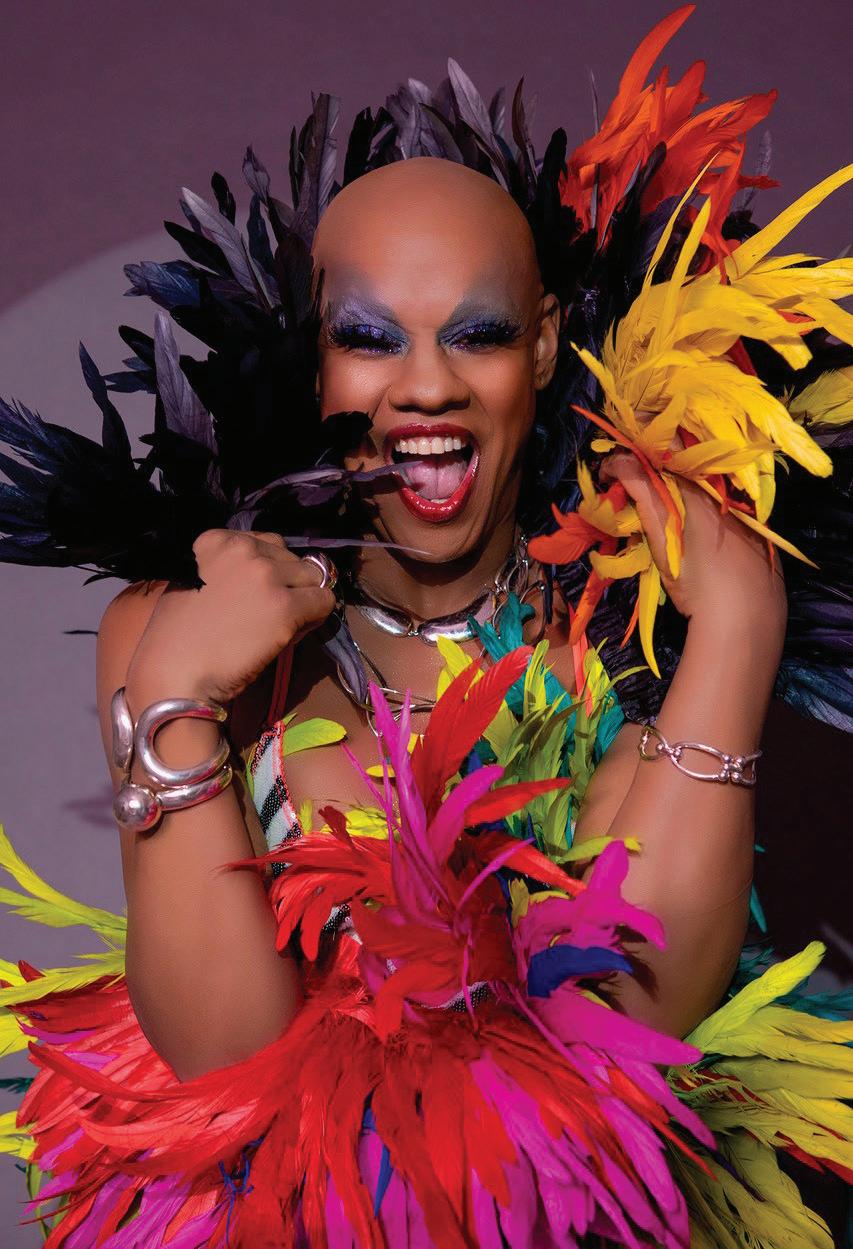




“Everybody
“What you’re experiencing right now, Happily Natural Day, should be your every day. Every day you should be looking to support Black businesses, Black farmers and Black communities,” Carter said. Right, Richard McIntosh of
Taste








By George Copeland Jr.
Whether on the basketball court, working with a team, training young athletes or just living life, Rudolph B. Cunningham Jr. was remembered as a man of steady skill and values, always ready to share them with others. Cunningham, 68, died Thursday, Aug. 28, of pneumonia. His passing leaves a deep void for family and friends, though his final days were marked by the humor and warmth he shared, even from his hospital bed.

“We’re gonna miss the humorous side of him,” said Cunningham’s wife, Sheila. “He just always had to keep everybody laughing.”
His playful spirit, they said, was a way of lifting others even in difficult times.
“He was always in a joking way, that’s always been him,” said Cunningham’s son Rudolph L. Cunningham, “just taking the concern off of him and trying to let everybody know he was okay.”
Born in Richmond on March 13, 1957, Cunningham first made a name for himself in basketball at Maggie Walker High School, where he was initially seen as quiet and reserved but became known for his pleasant and
Free Press staff report

responsible nature.
“He made you feel good just being around him,” said Howard Hopkins, a former Maggie Walker athletic director who maintained their friendship for years.
Working alongside other notable student-athletes such as Clyde Austin, Cunningham became known for his impactful skills as a shot-blocker. His talents earned him the nickname “Rudy The Reject” and helped contribute to Maggie Walker’s State Group AAA title victory in 1976.
“Rudy was slow-walking, slow-talking, but whenever his fire was lit, he was as good as anybody that came through here at that particular time,” said Harold Harris, a former assistant coach at Maggie Walker.
After a year playing basketball at WinstonSalem State University following high school, Cunningham returned home, and joined the workforce. His lasting impact on sports came through coaching community programs, including basketball camps with Henrico County Recreation and Parks, where he shared both his skills and his values.
impact on him and other family members who are student-athletes as well as others who have gone on to mentor young people.
“No matter what, you gotta have energy and effort to make it in whatever you want to do,”
Rudy L. said. “Those are life lessons, not just in basketball but as a human being.”
Cunningham is preceded in death by his parents, Rudy B. Cunningham Sr. and Mabel Cunningham; brother Charles Calvin and sister Cynthia.
In addition to his wife and son Rudy L., he is survived by his daughter, Deandra Singleton; sons Shawnn B. Cunningham Sr. and Bernell Dante Lamont “B” Harris ; five grandchildren; two sisters; several nieces, nephews and cousins; and other relatives and friends.
Cunningham’s remains rest at Joseph Jenkins Jr. Funeral Home at 2011 Grayland Ave. and can be viewed Thursday, Sept. 4 from 10 a.m. to 8 p.m. and Friday, Sept. 5 from 10 to 11 a.m. Funeral services will be held at 11 a.m. on Friday, Sept. 5 at St. Paul’s Baptist Church at 4247 Creighton Road.



Rudy L., a coach and host of community games, said his father’s training has had a lasting
The Rev. Steve Parker of Atlanta, a former minister at St. Peter Baptist Church in Glen Allen, will return to Richmond as the Men’s Day speaker for Second Baptist Church (West End) at 11 a.m. Sunday, Sept. 7. Parker earned a bachelor’s degree in finance from Hampton University and both a master of divinity and doctor of ministry from Virginia Union University. He was licensed to preach at Shiloh Baptist Church in Alexandria and ordained at Cedar Street Baptist Church of God in Richmond before serving as director of ministries at St. Peter.
“We are excited to welcome Dr. Parker back to the Richmond area,” said the Rev. James Henry Harris, pastor of Second Baptist. “We invite everyone to join us Sunday morning as we celebrate Black men.”


